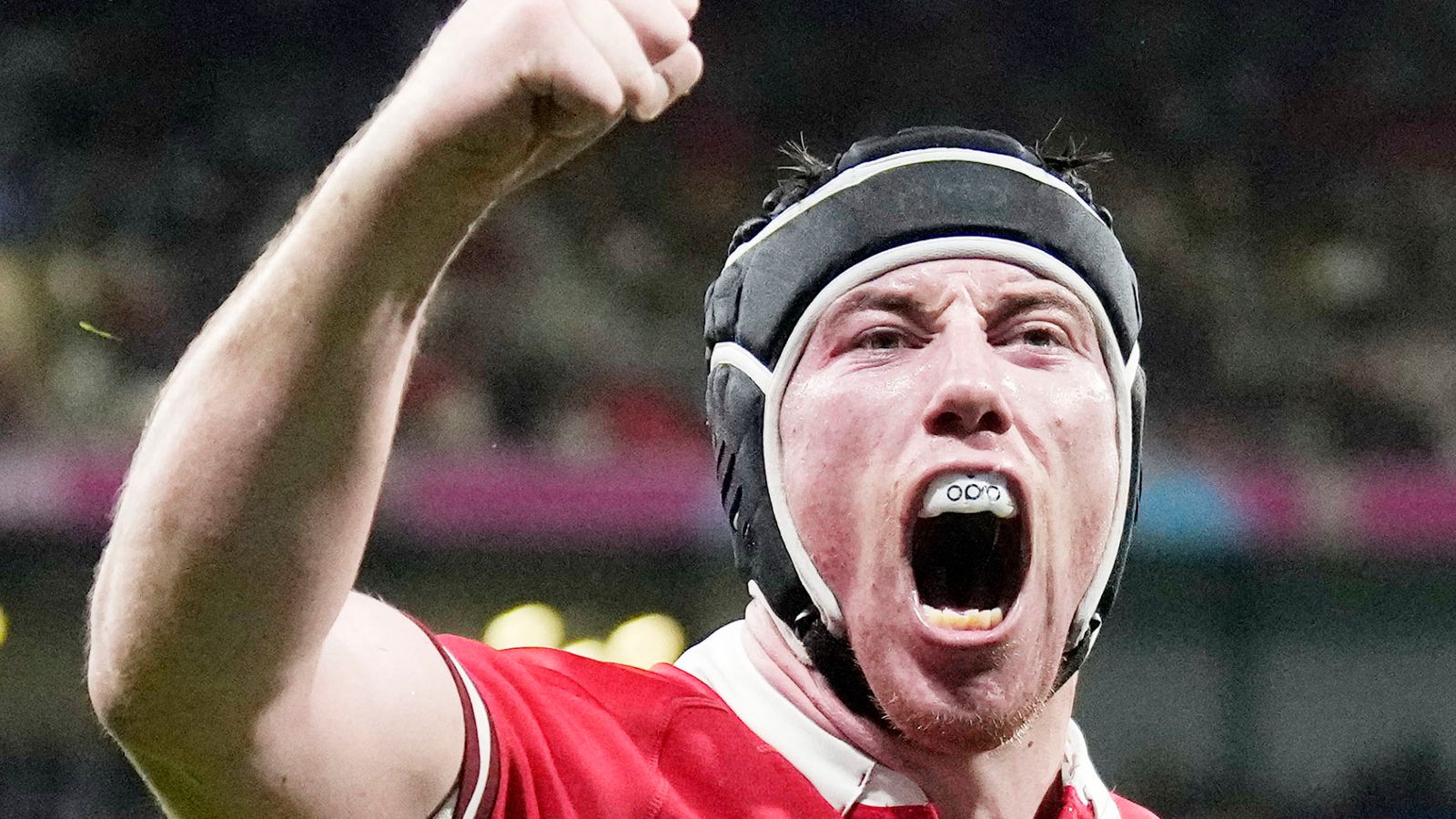Mouthguards fitted with smart technology to help detect brain injuries sustained by players are to be adopted in professional rugby union.
The sport’s global governing body, World Rugby, said the technology will measure the force of head impacts in real time.
Alerts will be sent to an independent matchday doctor to signal “a high level of acceleration which could lead to an injury”.
Players who might not have shown symptoms can then be taken off the field and checked as part of the head injury assessment (HIA) process.
World Rugby said it is investing €2m (£1.7m) in the technology to support unions, competitions and clubs, which means “elite players will be better cared for than ever before”.
It will be used for the first time in the inaugural edition of the WXV – the global women’s competition – this month and integrated into the HIA process from January.
Elite rugby players will be required to wear the mouthguards in training as well as during matches.
World Rugby said the move will enable coaches “to better tailor drills, tackle skills and training load for each individual player, and best support their performance and welfare”.
Eanna Falvey, World Rugby chief medical officer, said: “The latest scientific research and expert opinion is telling us one thing – reduce the forces players experience on their heads at all levels of the game.
“That is exactly what we’re doing.
“The advances in smart mouthguard technology mean elite players will be better cared for than ever before.
“We are taking smart mouthguards out of the realm of medical research and putting them into the world of everyday performance management to continue to manage player welfare in the best way possible.”
Please use Chrome browser for a more accessible video player
Read more:
Rugby tackle height lowered amid head injury fears
New concussion guidance for athletes in grassroots sport
World Rugby said its independent Concussion Working Group is recommending all players at all levels wear a mouthguard, pointing to research in ice hockey which found it protects against dental injuries and reduces the risk of a concussion by 20%.
In community rugby, players with a diagnosed brain injury should not return to play for 21 days.
There are increasing concerns about the health of rugby players, from the elite level to the grassroots, because of the effect repeated knocks to the head can have on the brain.
The Rugby World Cup is taking place against the backdrop of a lawsuit filed by former international players against governing bodies alleging the sport’s authorities failed to take reasonable action to protect the players from repeated blows to the head during their careers.









